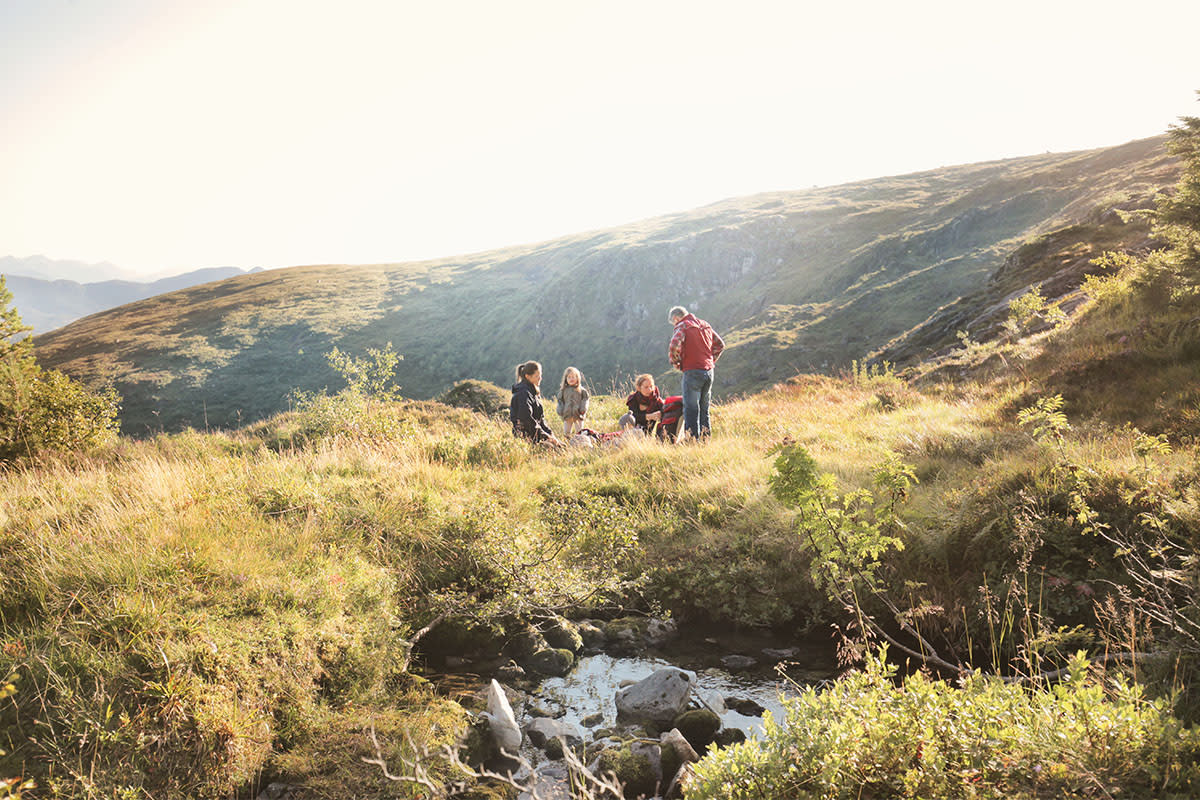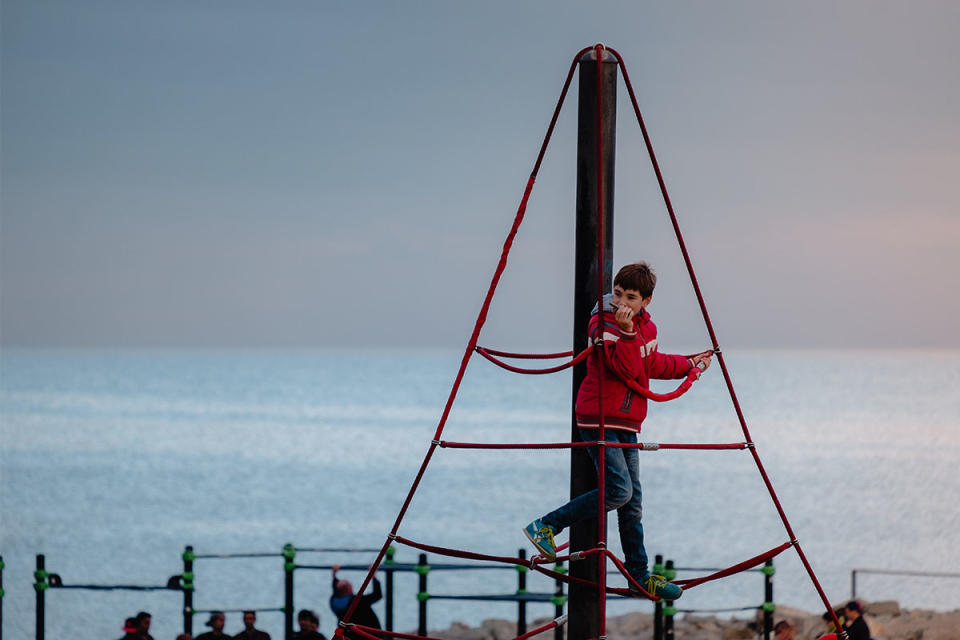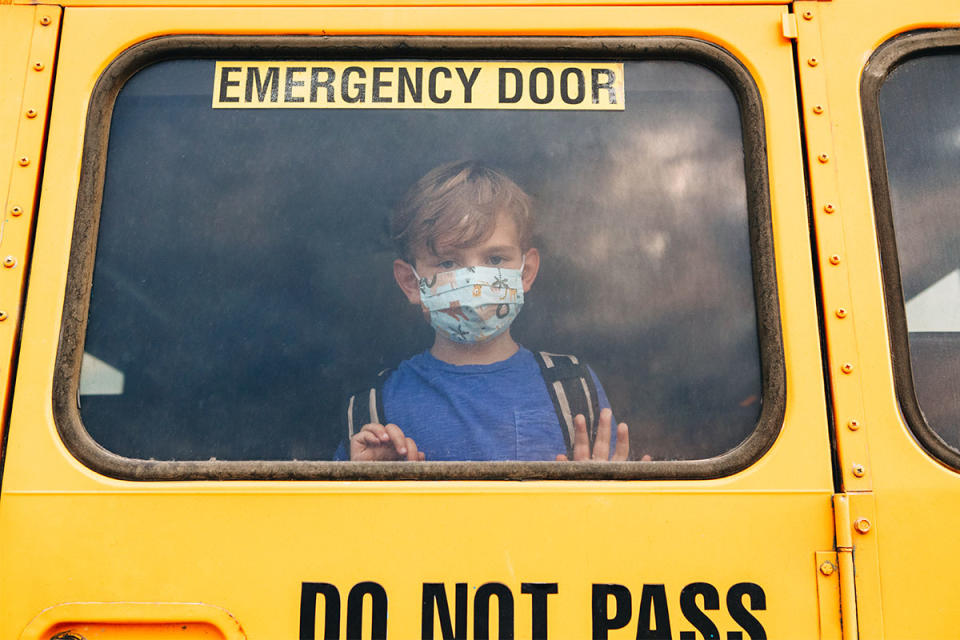A Parenting Philosophy Called "Radical Engagement" Could Finally Get Your Kids Outside

For years, the NFL has sponsored an initiative with the American Heart Association called PLAY 60, which has a pretty straightforward mission statement: encourage kids to get 60 minutes of physical activity each day. While the project has reached millions of children, that number has also long felt a bit meager — just one hour of running around for an entire day?
But believe it or not, the goal is actually pretty robust. According to research from the Child Mind Institute, the average American child averages less than seven minutes of play outside a day, compared to seven hours of screen time a day. The pandemic only intensified this trend, as kids adapted to “school days” sans recess and weathered club and camp cancellations. Meanwhile, parents (somewhat understandably) found it easier to govern their hyper-stressed households when their children were simply sitting in the other room with an iPad.
Limited physical activity among youth has dire, far-reaching consequences, though; it contributes to rising obesity rates, interferes with creativity and cognitive function, limits risk-taking and can “plateau” socialization skills. Play — and especially play that happens outside, with peers — is a feast for the young body and brain. Kids don’t realize how beneficial it is while it’s happening (partly why it’s so effective), but that also means that when the natural order of things slips away, they don’t know enough to speak up, or how to get out of their own way.
That’s where parents can, and should step in, argues an American outdoorsman named Steven Rinella, whose name you might recognize as the host of MeatEater and The Wild Within. Rinella has a new book out, called Outdoor Kids in an Inside World, and recently sat down with Outside to discuss a philosophy he calls “radical engagement.”
Rinella grew up in Twin Lake, Michigan, a rural town not far from Lake Michigan, and has spent his life hunting, hiking and fishing in remote locales all over the world (from Alaska to New Zealand). But his kids grew up in a city, and he was terrified that they’d grow up to “hate” nature — or at the least feel indifferent to it, in line with the youngest of the Gen Z cohort and the emerging Generation Alpha (born from 2010 to 2025).
He has developed a number of strategies to keep them outside, moving and actually interested in what they’re seeing. Once it feels like a chore to the kid, like anything else, the game is lost. Rinella advises parents to find nature in their local environs first. That means camping out in the backyard, taking walks to local parks and encouraging questions about the natural world that intersects with that neighborhood, even if it’s the city or suburbs. Kids can start small, learning to appreciate the vegetation and wildlife around them, before graduating to the wild stuff.
It’s important not to rush into a National Lampoon-style family backpacking trip. If the family doesn’t feel ready to go, and things go wrong (which is often the case, considering it’s the great outdoors), that could provide enough nightmare fuel for your kids to shoot down years of potential trips thereafter. Find ways to plug outdoor time around activities that they love. It doesn’t have to be all about tying knots and building fires; what about seeking out mightier hills for sledding in the winter? Or finding a tucked-away field to kick a soccer ball around? Also, never underestimate how much kids love jumping into lakes and swimming holes. Skip the waterpark with its long lines and take a dip somewhere else.
Kids don’t have to be perfect scouts to garner an appreciation for moving around, being outside and understanding that the Earth doesn’t belong to them — it’s a shared home, where we all should act as conscious participants and stewards. Technology isn’t totally at odds with this mission, either. Rinella says he’ll pull up videos on YouTube to help answer questions his kids have about their adventures into the natural realm.
Years back, survival specialist Bear Grylls famously got in a bit of trouble for leaving his 11-year-old son on an island off the coast of Wales, presumably to hone the boy’s coping skills and stoicism in the face of danger. (He had to be saved by the Royal National Lifeboat Institution.) Fortunately, radical engagement doesn’t suggest you go that far. At this point, it’s “radical” to get your kids outside at all. Try to prioritize the philosophy this summer. They may resist it at first, but they’ll be thankful you stepped in down the line.
More Like This
Is “Risky Play” Right for Kids? Parents Are Fighting About It Online.
Why a Growing Number of Young Parents Refuse to Let Their Kids Use iPhones
The Real Reason That American Children Are Falling Behind the Competition
Thanks for reading InsideHook. Sign up for our daily newsletter and be in the know.
The post A Parenting Philosophy Called “Radical Engagement” Could Finally Get Your Kids Outside appeared first on InsideHook.
The article A Parenting Philosophy Called "Radical Engagement" Could Finally Get Your Kids Outside by Tanner Garrity was originally published on InsideHook.




